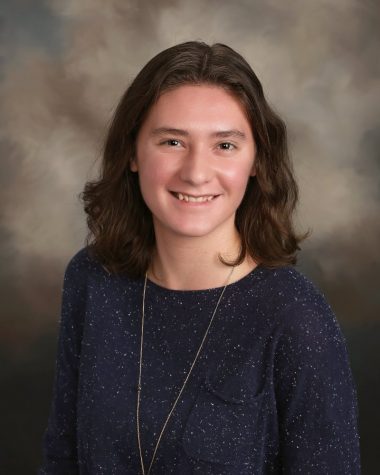‘The Crimes of Grindelwald’ crafts an intriguing story among authentic characters
November 28, 2018
For those who mourned the end of the Harry Potter series, the 2016 film, Fantastic Beasts and Where to Find Them, provided a fresh glimpse into J.K. Rowling’s wizarding world. Nov. 16 marked the second installment in the Fantastic Beasts series, The Crimes of Grindelwald, which highlights another intriguing and adventurous extension to the fantastical perils of witches and wizards.
Taking place about seventy years before the events of the Harry Potter series, the first Fantastic Beasts introduced the awkward yet endearing Newt Scamander (Eddie Redmayne), whose fascination with magical creatures took him to New York City and got him into ever-growing amounts of trouble. The film had some darker turns when it came to the parasitic magic known as an Obscurial, but for the most part featured the more whimsical side of the magical world.
The Crimes of Grindelwald, on the other hand, takes on a much darker tone from the start, with the deteriorating Warner Brothers logo harkening back to the eerie feel of the later Harry Potter movies.
There were numerous aspects of this film I enjoyed, but the most prevailing was the consistency and authenticity of the major characters throughout this series so far.
We meet Newt’s brother, Theseus (Callum Turner), right away. And, just as quickly, it becomes clear the brothers have a rocky relationship. What I admired about Theseus’ character, though, was that he didn’t fall into the all too predictable role of the purely menacing, diabolical older brother determined to make his sibling’s life horrific. It’s clear that Theseus does truly care about Newt and wants what is best for him, but the issue lies in the fact that Theseus fails to understand his brother––more specifically, he fails to understand that his brother has no interest in being like him.
In the first Fantastic Beasts, Newt befriends sisters Tina (Katherine Waterston) and Queenie (Alison Sudol) Goldstein, and the non-wizard––or no-maj, as they’re referred to in America––Jacob Kowalski (Dan Fogler). Jacob and Queenie begin dating, and by this film want to get married (which is against the wizarding world law in America). I loved the balance of intelligence and naivete that enveloped Queenie’s characterization in the first film, and was seamlessly carried into this one. At first glance, she can come off as a ditz, but her mind-reading abilities highlight her true cleverness. Despite that, she remains a dreamer as well, and struggles to come to terms with the idea that she and Jacob cannot get married.
This surprising complexity behind Queenie’s character provides the perfect opportunity for the infamous Grindelwald (Johnny Depp)––who seeks to get rid of the wizarding world’s most sacred law, the statute of secrecy––to lure her onto his side with promises of a world where wizards no longer have to hide, and people like Queenie and Jacob can freely marry each other.
The most impressive part of Grindelwald’s persuasive tactics is when he shows a vision of WWII: at the time an unthinkable future, that another world war was possible, let alone so soon after the first. Grindelwald’s images of tanks, concentration camps and nuclear bombs serve as a jolting lesson in what non-wizards are capable of without the magical world intervening, and further exemplifies why he’s able to get so many to join his cause. In Grindelwald’s eyes, if the magical world remains hidden among the shadows of non-wizards, the world is doomed to be destroyed by them.
And then there’s young Dumbledore (Jude Law) who shares an intimate past with Grindelwald and, in many ways, is his opposite. What piqued my curiosity most going into this film was how a Dumbledore who’s decades younger and possesses far less authority in the wizarding world than he does in Harry’s day, would be portrayed. Dumbledore is different in many ways, but the thread that goes back all these years is his quiet confidence through both great and harrowing events. He is almost always secure in himself, despite an unstable and chaotic world around him, and Jude Law portrays that phenomenally.
J.K. Rowling’s screenwriting skills have proven to be as good as her book-writing ones, and she’s once again managed to create a variety of complex characters that serve to strengthen the plot and add another intriguing layer to the ever-expanding world of wizards. The Crimes of Grindelwald weaves between each character’s strengths and flaws to craft an authentic story that proves this film goes far deeper than a whimsical tale of magical mayhem.



